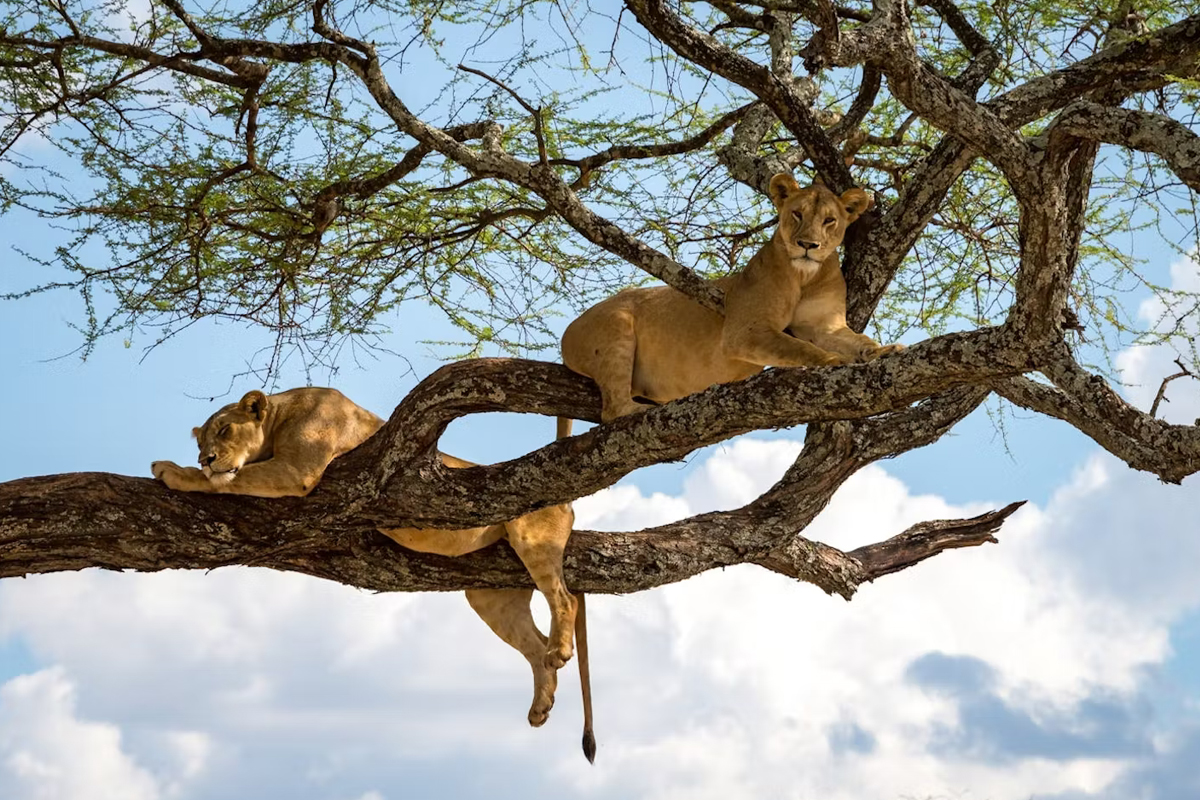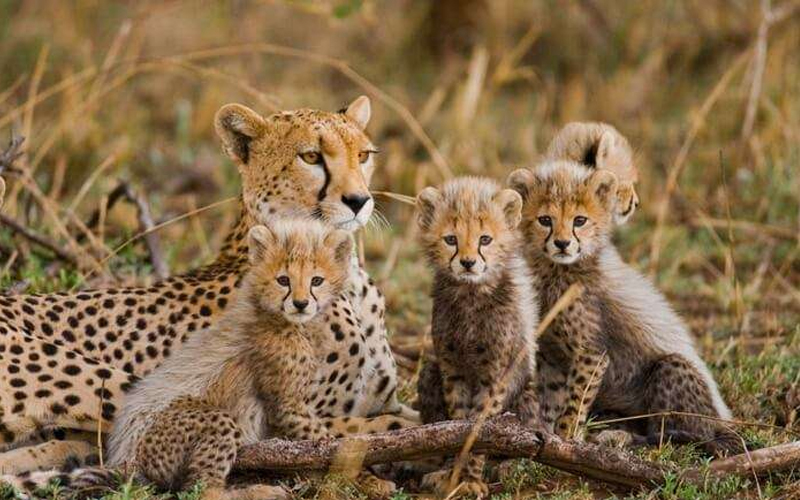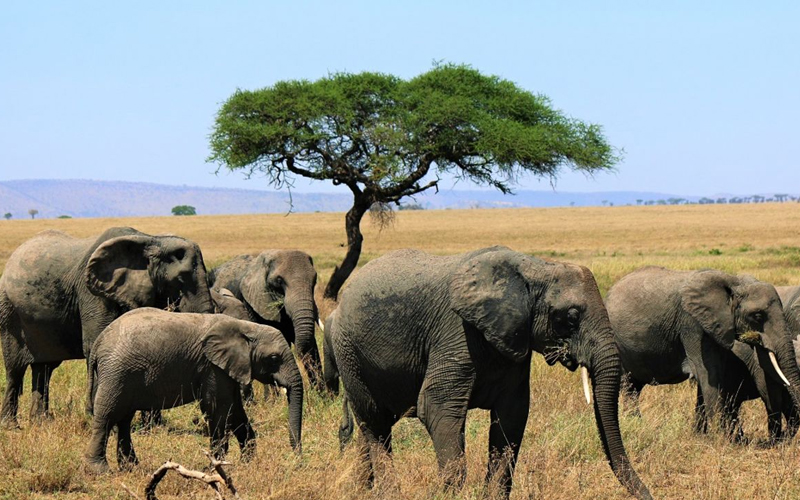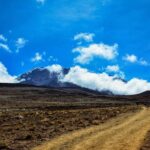Tanzania, with its vast savannas, majestic wildlife, and stunning landscapes, is one of the most sought-after safari destinations in the world. But as the impacts of climate change and mass tourism grow, there’s an increasing need for sustainable tourism practices. In 2024, we’re seeing a stronger push than ever towards eco-friendly safaris that protect wildlife, preserve local ecosystems, and support community livelihoods. If you’re planning a Tanzanian safari, it’s important to know how these trends are shaping the experience and what you can do to travel responsibly. Let’s dive into the latest sustainable safari tourism trends in Tanzania for 2024.
Sustainable Safari Tourism in Tanzania in 2024
1. Eco-Friendly Safari Lodges: Leading the Green Movement
One of the biggest trends in sustainable tourism for 2024 is the rise of eco-friendly safari lodges. These lodges prioritize minimal environmental impact while offering guests a luxurious, immersive experience in Tanzania’s wild landscapes.
- Solar-Powered Lodges: Many safari camps and lodges are now running entirely on solar power. This shift reduces reliance on diesel generators, cutting down on harmful emissions and minimizing noise pollution that can disturb wildlife. Chem Chem Lodge, located between Tarangire and Lake Manyara, is a great example of a solar-powered safari experience.
- Water Conservation Initiatives: Tanzania’s dry season can be harsh, and water scarcity is a real issue. Lodges like Nomad Tanzania have implemented innovative water recycling systems, low-flow showers, and strict water usage guidelines to conserve this precious resource.
- Locally Sourced Materials: More lodges are being built with natural, locally sourced materials like thatch, wood, and stone. This not only reduces the carbon footprint of construction but also helps blend the lodges into the natural environment, providing a more authentic experience.
2. Conservation-Focused Tourism: Supporting Wildlife Protection
Sustainable safari tourism in Tanzania is not just about reducing environmental impact—it’s about directly supporting wildlife conservation. In 2024, safari operators are increasingly involved in conservation projects that protect endangered species and restore habitats.
- Anti-Poaching Efforts: Poaching continues to be a major threat to Tanzania’s wildlife, particularly elephants and rhinos. Many safari companies, such as Asilia Africa, are partnering with local anti-poaching units, providing funds, equipment, and even patrol support to help safeguard wildlife from illegal hunting.
- Rewilding Projects: Some lodges and conservation groups are working on rewilding efforts—restoring land to its natural state and reintroducing native species. The Grumeti Reserve in the Serengeti is at the forefront of this movement, helping to repopulate the area with species like the black rhino, which were once nearly extinct here.
- Community-Led Conservation: Local communities are increasingly playing a key role in protecting the landscapes they’ve lived in for generations. Safari operators are partnering with Maasai and other indigenous groups to promote wildlife protection while respecting traditional ways of life. For example, the Honeyguide Foundation works with Maasai warriors to track and protect wildlife in the Ngorongoro Conservation Area.
3. Reduced Carbon Footprint: Offsetting and Responsible Travel
In 2024, there is growing awareness among travelers about the carbon footprint of long-haul travel, especially when flying to remote safari destinations like Tanzania. The tourism industry is stepping up with ways to minimize or offset these impacts.
- Carbon Offset Programs: Many safari operators now offer carbon offset programs, where a portion of the travel costs go toward reforestation or renewable energy projects. Some companies, like Wilderness Safaris, have partnered with global carbon offset programs to ensure that their operations are carbon-neutral.
- Electric Safari Vehicles: The introduction of electric safari vehicles is one of the most exciting trends for 2024. Silent, emission-free, and environmentally friendly, these vehicles are ideal for wildlife viewing as they don’t disturb the animals. Lodges such as Serengeti Nomad Camp are among the pioneers offering electric game drives, and the trend is expected to grow in the coming years.
- Slow Travel: The concept of “slow travel” is gaining popularity, encouraging travelers to spend more time in fewer places rather than hopping between multiple parks and lodges. This reduces the environmental impact of constant movement and allows for a deeper, more immersive connection with the natural environment. Many safari companies are offering extended stay packages in single locations like Serengeti’s Lamai Wedge or Ruaha National Park to promote this approach.
4. Community Engagement and Fair-Trade Tourism
Sustainable tourism isn’t just about protecting the environment—it’s also about empowering local communities. In 2024, there’s a stronger push toward fair-trade tourism, where local communities benefit directly from safari tourism revenues.
- Maasai-Run Lodges and Cultural Safaris: More and more lodges are being owned and operated by local Maasai communities. This allows them to retain a significant portion of the revenue, which is reinvested in education, healthcare, and wildlife conservation. The Maasai Wilderness Conservation Trust is a leading example of how eco-tourism can support both cultural preservation and community development.
- Craft Cooperatives and Local Markets: Tourists visiting Tanzania in 2024 are encouraged to buy souvenirs from local artisans rather than mass-produced goods. Handcrafted jewelry, textiles, and wood carvings made by Maasai and other indigenous groups not only offer a unique piece of Tanzanian culture but also directly support local economies. These fair-trade markets are popping up around popular tourist spots like Arusha and Moshi.
- Community-Based Tourism Initiatives: Programs like Tanzania Cultural Tourism give travelers the chance to stay in local villages, learn about indigenous customs, and participate in activities like traditional dance, beekeeping, or cattle herding. These immersive experiences are designed to be mutually beneficial—tourists gain deeper insights into Maasai life, while the communities benefit from sustainable income without compromising their cultural integrity.
5. Sustainable Safari Packing: Reducing Single-Use Plastics and Eco-Friendly Gear
As a responsible traveler, you can play a big role in making your safari experience more sustainable by packing smart and reducing waste. In 2024, there’s a growing focus on eco-friendly safari packing.
- Say No to Single-Use Plastics: Tanzania has banned the use of single-use plastic bags, but safari-goers can take it a step further by bringing reusable water bottles, eco-friendly toiletries, and biodegradable wipes. Some safari lodges now provide filtered water stations for refilling bottles, eliminating the need for plastic water bottles.
- Eco-Friendly Gear: Invest in eco-conscious travel gear like solar-powered chargers, bamboo toothbrushes, and organic cotton clothing. Lightweight, sustainable safari gear is not only better for the environment but also helps minimize your overall carbon footprint.
- Leave No Trace: Following the “leave no trace” principle is crucial. Safaris should leave minimal impact on the landscape. Always ensure that waste is disposed of properly, stick to designated trails, and avoid disturbing wildlife.
6. Education and Awareness: Learning Through Sustainable Travel
Sustainable safari tourism isn’t just about changing practices; it’s about fostering a deeper understanding and appreciation of Tanzania’s natural world. In 2024, there’s a push towards educational safaris that inform travelers about conservation, local wildlife, and the challenges faced by local communities.
- Wildlife Conservation Education: Many safari operators now offer programs that teach travelers about ongoing conservation efforts, from elephant collaring projects to lion research initiatives. These programs not only enhance the safari experience but also give tourists a better understanding of the challenges involved in protecting Tanzania’s wildlife.
- Volunteer Safaris: A growing trend for 2024 is combining a safari experience with volunteering. Programs like Earthwatch Expeditions offer travelers the opportunity to assist in conservation efforts, such as wildlife monitoring, anti-poaching initiatives, or habitat restoration projects. This allows tourists to contribute directly to the protection of Tanzania’s ecosystems.
- Educational Talks and Workshops: More lodges are offering educational talks by local experts, conservationists, and community leaders. Whether it’s a lecture on elephant behavior or a discussion on Maasai cultural traditions, these programs enhance the safari experience and encourage responsible travel practices.
FAQs
Q1: What makes a safari “sustainable”?
A sustainable safari focuses on minimizing environmental impact, supporting local communities, and contributing to wildlife conservation. This can include eco-friendly lodges, responsible wildlife viewing practices, and engaging in programs that protect the environment and benefit indigenous populations.
Q2: How can I reduce my carbon footprint while on a Tanzanian safari?
You can reduce your carbon footprint by choosing eco-friendly lodges, participating in carbon offset programs, packing sustainably, and using electric safari vehicles when possible. Opting for slow travel—spending more time in one location—also helps minimize environmental impact.
Q3: Is sustainable tourism more expensive?
Sustainable safaris can sometimes be more expensive due to the investment in eco-friendly infrastructure and fair-trade practices. However, the long-term benefits of conservation and community development make it a worthwhile investment. There are also many affordable, sustainable options available.
Sustainable safari tourism in Tanzania is more than a trend—it’s the future of travel in this iconic destination. In 2024, we’re seeing incredible strides in eco-friendly accommodations, conservation efforts, and community engagement that not only protect the environment but also enrich the experience for travelers. By choosing responsible safari operators, reducing your environmental impact, and supporting local communities, you can help ensure that Tanzania’s wildlife and cultural heritage thrive for generations to come.
So, as you plan your Tanzanian safari for 2024, remember—every choice you make can help shape a more sustainable, eco-conscious future for this incredible country.
Plan Your Ultimate Tanzania Experience!
Explore our pages for comprehensive information on:
- Tanzania Luxury Holiday
- Tanzania Travel
- Safari Packing Gear List
- Safety Guidelines
- Serengeti Great Migration
- Tarangire National Park
- Terms and Conditions
- The Great Serengeti Migration
- Zanzibar Vacation
Visit our website to gather everything you need for an unforgettable adventure!














